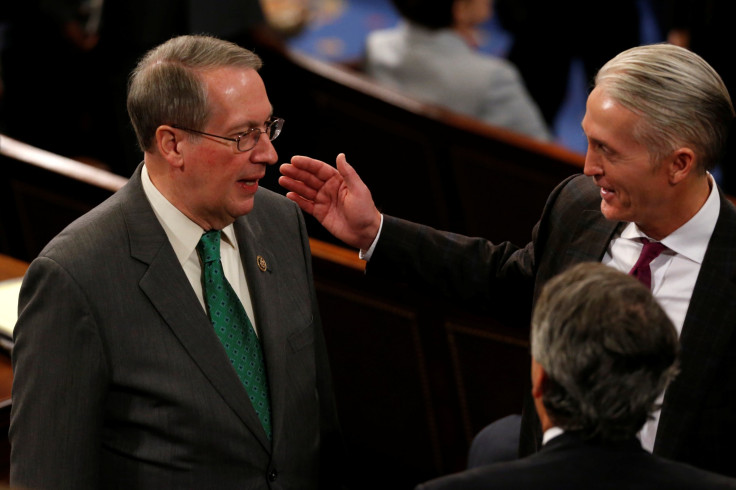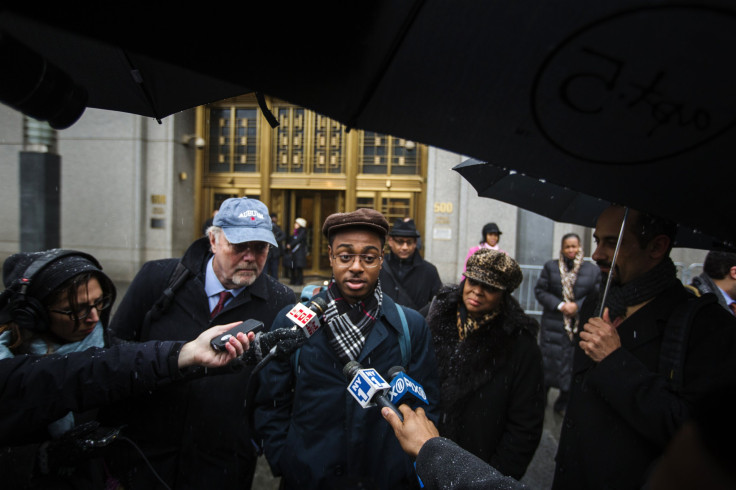Class Action Lawsuits Could Be Threatened By Bill In Congress

A bill headed to the House for a vote on Thursday would reform class action lawsuits in the U.S., but opponents say the law would create such difficult hurdles to advancing class action suits in the courts that it would make the practice virtually impossible.
The Fairness in Class Action Litigation Act (H.R. 985), filed by House Judiciary Committee Chairman Bob Goodlatte, R-Va., would "diminish abuses in class action and mass tort litigation that are undermining the integrity of the U.S. legal system," according to the bill's text.
Read: Galaxy Note 7 Class Action Suit Filed Against Samsung
Class action lawsuits are lawsuits in which people who suffered similar injuries — be they physical, mental or financial — join together to file a single lawsuit instead of a series of individual lawsuits. The lawsuits often target large companies, like Enron, WorldCom and Exxon, but they can also target government institutions and agencies.
While class action lawsuits allow people to team up and pool resources to fight large corporations, critics say these kind of lawsuits can create big payouts for lawyers, while plaintiffs are rewarded very little. The bill would make sure that federal courts would not be able to allow class action suits to move forward unless every person in the suit can prove they had the same type of injury. It would also make sure lawyers in class action cases have no prior relationships with plaintiffs and would limit the percentage of a settlement or award that lawyers could collect.
But civil rights groups oppose the bill, which they see as an effort to take away a valuable tool marginalized groups use to seek justice and the weak use to hold the powerful accountable.
"The bill will undermine the enforcement of this nation's civil rights laws and upend decades of settled class action law," said a letter sent last month to the House Judiciary Committee signed by 121 civil rights groups, including the ACLU and the NAACP Legal Defense Fund. The bill would "impose a nearly insurmountable hurdle in situations where a class action is the only viable way to pursue valid but low-level claims," the letter said.

The civil rights groups, along with the American Bar Association, have argued that it's already difficult to move a class action lawsuit forward in the courts — only 25 percent of suits filed as class action are certified by federal courts, the association said. They also assert that barring lawyers who have previously worked with clients from filing suits makes it impossible for nonprofit legal groups to bring together clients and would prevent them from taking on cases.
"In the event that we did find reason for a class action suit, H.R. 985 would prohibit our organization from representing those clients and prevent those with arguably the best knowledge of potential clients from bringing their cases," Jenn Rolnick Borchetta, a lawyer with Bronx Defenders who helped litigate a class action lawsuit against the NYPD's stop and frisk policies, wrote in an essay published Wednesday by The Marshall Project. "Put aside that this limitation likely violates the right to counsel, it would frustrate the kind of collaboration that is a bedrock of civil rights enforcement."
But where civil rights groups see a useful tool, others see an oft-abused loophole that has enriched lawyers at the expense of plaintiffs.
"Today, it is lawyers, not consumers, who are the main beneficiaries of class actions," Lisa Rickard, president of the Institute for Legal Reform at the U.S. Chamber of Commerce, wrote in an op-ed that was published Wednesday in The Hill. The U.S. Chamber of Commerce is a non-profit that advocates for U.S. companies, which are often the targets of class action lawsuits.
"The system has become so dysfunctional that the amount paid to lawyers in class action settlements is often many times the amount actually paid to all of the thousands, and sometimes millions, of class members combined. In some cases, lawyers get big fees, while class members get no money at all," Rickard wrote.
© Copyright IBTimes 2025. All rights reserved.






















